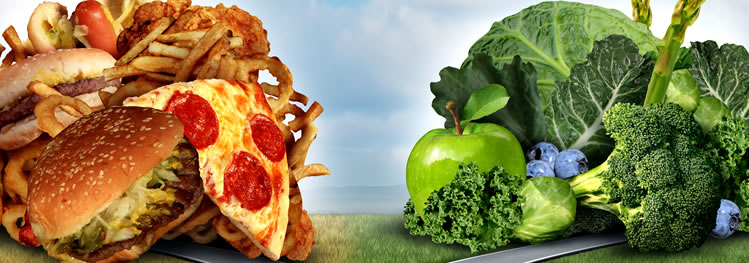
¿Es cierto que una mala dieta mata más que el tabaco?
24 Apr 2019¿Sabías que llevar una mala dieta puede tener consecuencias nefastas en tu salud?
La comida es aquello que aporta nutrientes a nuestro cuerpo y le permite seguir funcionando. Por ello, si no controlamos qué es lo que estamos comiendo, es posible que, en realidad, estemos causando problemas en nuestra salud que pueden llegar a ser muy difíciles de solucionar.
¿Las dietas poco saludables matan más que fumar?
Según las últimas investigaciones, parece que podemos atribuir casi un cuarto del total de las muertes del año 2017 a las malas dietas. Esto quiere decir que:
“Algo más de 10 millones de personas murieron por causa de no llevar una buena alimentación, mientras que el tabaco afectó a 8 millones de personas en todo el mundo”
Estas cifras no dejan lugar a dudas, depender demasiado de los procesados y no conocer cuáles son las claves de la alimentación saludable puede acabar con nuestra vida. No debería resultarnos extraño ya que nuestro cuerpo necesita la comida para continuar realizando las funciones vitales. Si no tiene todos los nutrientes necesarios o si estos son de mala calidad, deterioraremos poco a poco nuestra salud mental y física.
Una mala alimentación puede tener multitud de repercusiones, pero los expertos comparten que los mayores daños se provocan en el sistema circulatorio. Nuestros vasos sanguíneos acumulan colesterol y nuestro corazón tiene más problemas al bombear la sangre si no vigilamos lo que comemos.
Otros problemas asociados a una dieta poco saludable son el cáncer o la diabetes.
6 claves para llevar una alimentación saludable
¿Quieres evitar todos los peligros de una alimentación deficiente? Estos son los seis consejos básicos que todas las dietas saludables deberían seguir para ser realmente beneficiosas para la salud, ¡es el momento de incorporarlos a tu vida diaria!
1. Evita los azúcares añadidos
Muchos alimentos envasados y de producción industrial llevan grandes cantidades de azúcar entre sus ingredientes. De esta manera no solo aumentamos nuestra ingesta calórica diaria, sino que además saturamos el cuerpo de un nutriente peligroso para nuestra salud.
¡A partir de ahora debes fijarte en las etiquetas para evitarlo!
2. Come de todo
En la variedad está el gusto, así que es mejor asegurarse de que nuestros platos tienen verduras, fuentes de proteínas, de hidratos y grasas saludables. Además, es importante comer diferentes fuentes de nutrientes cada vez, intercalando, por ejemplo, el consumo de legumbres con el de carnes.
3. Planifica las comidas
Haz varias comidas al día, dependiendo de la cantidad de hambre que vayas a tener en cada momento. No importa si haces tres o cinco ingestas diarias, lo importante es no comer con ansia.
4. Frutas y verduras a diario
Estos alimentos son muy ligeros y pueden prepararse de muchas formas diferentes. Su beneficio más importante es que te darán un gran aporte de vitaminas y minerales, además de fibra que te ayudará en las digestiones.

5. Cocina siempre que puedas
A pesar de que la vida del siglo XXI puede resultar muy ajetreada, lo cierto es que cuando cocinamos nosotros mismos nuestras propias comidas, ganamos en salud. Dedica unos minutos a cocinar cada día y así podrás evitar los procesados, la bollería industrial y los aditivos.
6. Bebe agua
A pesar de que una buena dieta, repleta de vegetales y frutas, te aportará grandes cantidades de agua, no olvides que mantener la hidratación es fundamental para tener una buena salud.
Así que…
Dejar la mala dieta y empezar a tomar decisiones más saludables con la comida es mucho más sencillo de lo que parece. Sigue nuestros consejos y podrás evitar las malas consecuencias de una alimentación deficiente.
¡Empieza a cuidarte cuanto antes para ver los resultados!




 Músculo
Músculo
 Óseo
Óseo
 Grasa
Grasa
 Caloría
Caloría
 Índice Masa Corporal
Índice Masa Corporal
 Agua
Agua
 Cálculo
Cálculo


